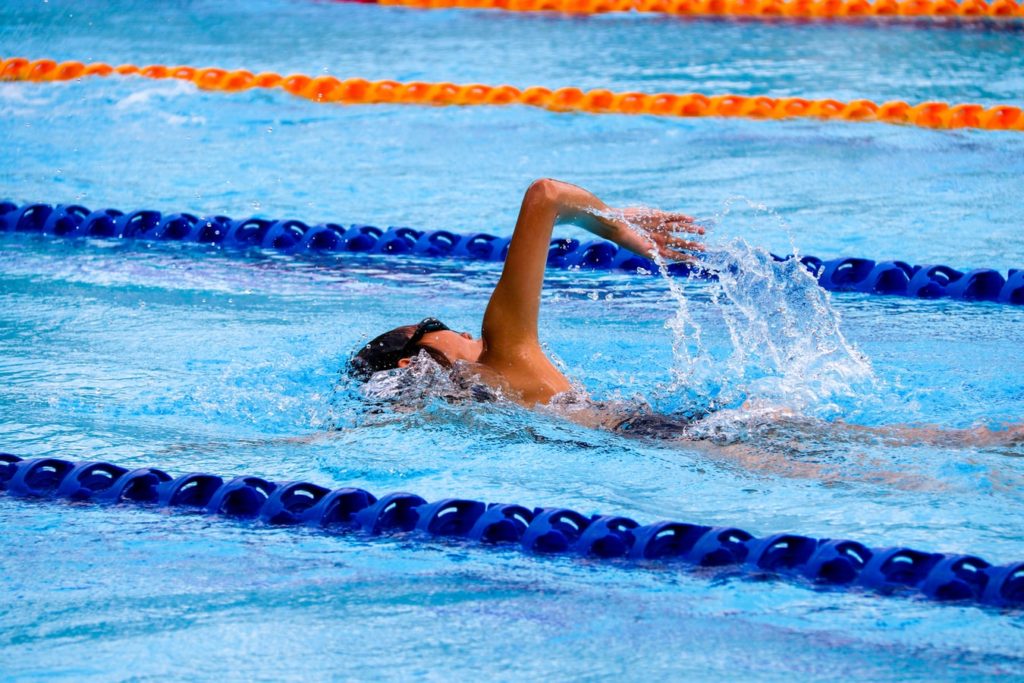Description: Competitive sportswoman and highly academic university graduate Emily shares her insights on how participating in competitive sports shaped her mental strength.
Resilience and discipline are essential characteristics that be transferred to academia and Telios Tutors are advocates of developing a strong mindset for success in all areas of academic and personal development.
I started swimming as soon as I was old enough to go to baby swim classes. Over the years I progressed to local competition level by primary school and by the start of secondary school had progressed to county level. This meant I was training thirteen hours a week from the age of 9.
This was driven by myself and I always bounced out of bed to be at the pool before school! This amount of training could seem surprising and it’s important to remember all children are individual.
What was a happy amount for me could be too much for someone else. It is essential your child is happy, excited to continue and coached appropriately. Training at a competition level built my mental strength in many ways that carried over to academics and still impacts my mindset to this day!
How Competitive sports helped build my mental strength for academia and beyond:
- Dedication: Committing to a fair amount of training was solely my choice and I believe this willingness to dedicate myself to a challenge helped aid my studies and manner in the workplace.
- Resilience: You can put in the work and things don’t always go how you imagined they would. This is true of a race and an exam. Being able to do my best and make peace with my performance on an ‘off’ day allowed me to always continue with a positive attitude.
- Hard work & results: I learnt from a very young age when you work hard at something you improve. This should seem like a given – but having tried and tested this process in sports gave me faith the same would happen if I applied myself to studying.
- Game face: Being familiar with ideas of competition prep will allow your child to handle their nerves more effectively on an exam day or interview. They are more used to performing under pressure and I personally still thrive under pressure to this day!
- Overall mental health: Exercise creates endorphins, which can be used as a nice boost to your baseline daily mental health. Personally, I have found regular exercise keeps me steady, positive and my best self.
- Competitive nature: Regular competitions fosters a competitive mindset. As long as it is balanced by a healthy amount of resilience and respect for your fellow competitors, this mindset can be massively beneficial. It will push you to do your best and welcome a new challenge.
- Confidence: Feeling physically strong as well as mentally strong is a huge confidence boost. This confidence can impact your child’s day to day performance in the classroom and even your own performance at work.
Physical & Mental Training
Sports and training from a young age is full of benefits for later life. In my second year of university when I felt a little lost and out of touch with my passion for my studies, I sought out training.
I had been a regular gym-goer in this time but with no specific purpose. I entered into heavy lifting to long term compete in Powerlifting.
I found that entering back into this process renewed my positivity and drive in all aspects of my life, not just sports. I was more driven with my studies, more positive day to day and back to my best self.
This allowed me to transform my grades that had started to dip and end my degree with a 2:1.
What physical sports or activity could you get involved with that can help unearth these skills within you?
Whether you are thinking about yourself or your child, there is always scope to include something new in your routine. Some things to ask your child and yourself:
- Do I enjoy team sports/activities?
Examples: Football, hockey, netball, cricket, rugby
- Do I want something where I perform alone?
Examples: Swimming, running, high jump
- Do I prefer arts?
Examples: Theatre, dance, singing, poetry readings
- Do I prefer mental challenges?
Examples: chess, spelling competitions, draughts
- Do I want to find something that allows me to compete?
Examples: All activities listed above allow for competition
From hockey to the theatre, to chess – each person has an individual spark and by answering the questions above you might find you are closer to finding it.
Remember, the most important thing is that you enjoy your chosen venture. You will likely perform better, continue with it longer and have much more fun. Start casually, keep your mind open and before you know it – you might be practising more often than you expected.




